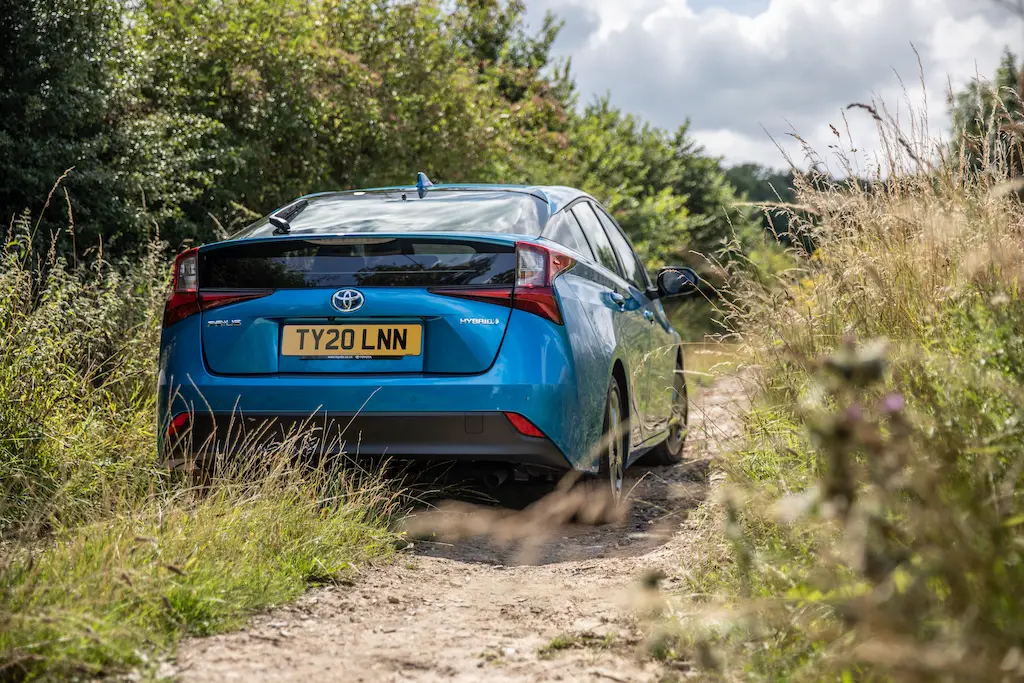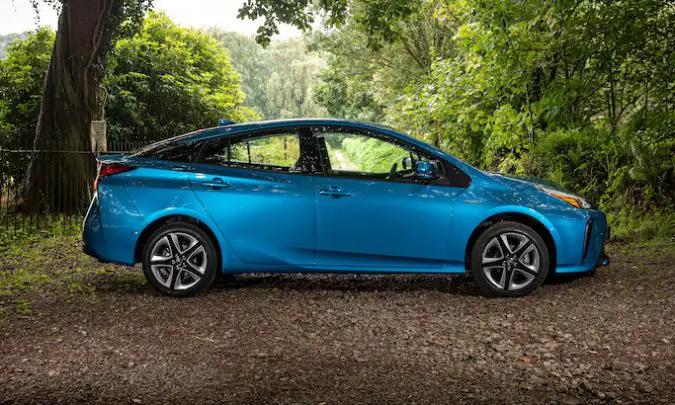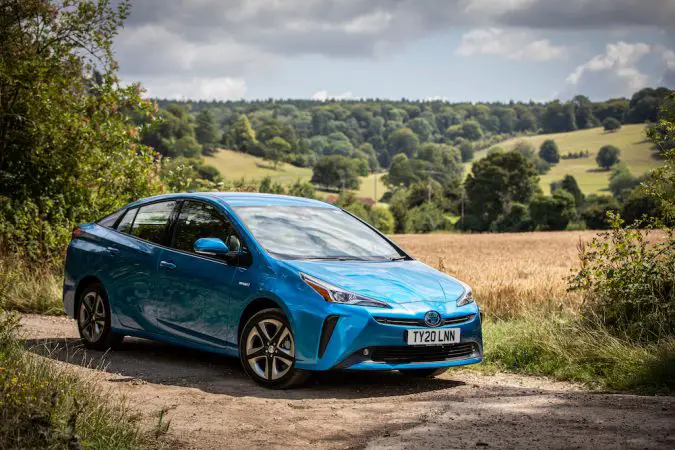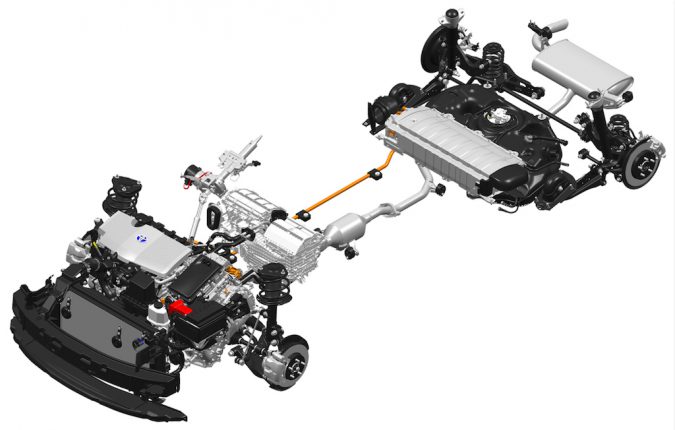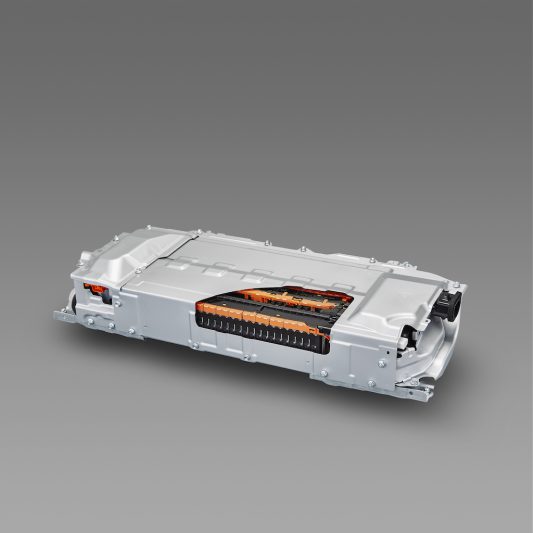As with every electric or hybrid vehicle, including the Toyota Prius, battery replacement is an unavoidable fact of life.
Perhaps this won’t always be the case, but it’s certainly something we’re stuck with for the time being.
Over time, batteries become less and less able to hold a charge. Unfortunately, they aren’t quite yet the never-ending, completely eco-friendly package that they’re often made out to be. However, it’s certainly a huge step in the right direction.
Let’s get this straight before we even get started – don’t try and change the battery yourself! There is a serious risk of injury or even death from these systems and they are best left to the professionals. Don’t be afraid to ask for help on this one. Even all mechanics should have specialist training before working on a hybrid or fully electric vehicle.
The need to be replaced applies to all batteries, whether they’re sending a charge to a car or a TV remote. Even if they’re rechargeable, eventually they will reach the end of their useful life.
In this article, we will explore the different options available to you once your Toyota Prius reaches this point. For your Prius battery replacement, you have two options:
- New batteries.
- Reconditioned batteries.
Click on any of the below links to jump through the text to the relevant section.
- EVs and Hybrids
- How The Prius Hybrid Works
- How Does It Charge
- Prius Battery Replacement (And Costs)
- Battery Life
- FAQs
Toyota Prius
In Latin, “Prius” means “to go before”, and “go before” it did.
Love it or hate it, the Toyota Prius was unquestionably a game-changer. It was the first widely-available hybrid vehicle, although the hybrid powertrain itself wasn’t invented by Toyota – these have actually been around pretty much since the beginning of the car itself.
The car was developed by Toyota with the attraction of being a low-emission, family-friendly, affordable vehicle. In this way, the company tapped into a wide-open market and set the standard for the future.
The first Prius was released to the public in 1997 and, incredibly, the same ideas that surrounded this car continue to be used in the hybrids that Toyota releases today, although the technology is currently improving exponentially.
In total, Toyota has sold over 15,000,000 hybrid vehicles since they started.
Today – no matter what you think of the car – the Toyota Prius still holds a large percentage of the market share. The same values are still there, and people are still buying them.
Read more about the history of the Toyota Prius in detail here, on Toyota’s official blog.
The Oncoming Electric Car Revolution
Okay, so hybrid cars aren’t fully electric, but they are a very necessary step towards the ultimate goal.
When the Prius was first released, pure electrical technology wasn’t even close to being mainstream. In fact, to most people, it probably didn’t even seem possible.
This lack of technological advancement meant that fully electric cars had very little appeal to the average person. The range would have been low, the battery power short-term, and that very few vehicle technicians would likely have had the necessary knowledge to fix it. All of these add up to excess money spent and inconvenience. The only real upside would have been the lack of road tax and environmental pollution.
Hybrid vehicles provide the stepping stone between internal combustion engines and electrical power. Combining the two technologies meant that advances could be made more quickly in the field of battery power, and from this, we saw the rise of companies like Tesla.
Today, fully electric cars are far from an uncommon sight. And it’s all thanks to cars like the Prius, which “went before” and paved the way.
Pros And Cons Of Hybrid Vehicles
Hybrid vehicles are by no means foolproof, but they have many advantages compared to the standard ones powered by an internal combustion engine.
It should also be remembered that technology is constantly evolving. What was new and exciting 20 years ago is nothing special today.
Here are two lists comparing the advantages and disadvantages of hybrid vehicles.
Hybrid Advantages
- Reduced emissions – since the internal combustion engine is supplemented and supported by the electric motor, the car can run more efficiently. This leads to reduced emissions, meaning your carbon footprint is less and driving is a little better for the planet.
- Reduced road tax – road tax is based on the above-mentioned point – how bad the emissions are for the environment. The better your car is for the environment, the less you’ll usually pay on road tax. While this might not be in the same price bracket as car insurance, every penny helps.
- Better fuel mileage – since the electric motor supports the engine, you’ll get more miles per gallon of fuel. This will result in you spending less on fuel. Expect to feel the bulk of the benefits when city driving, as opposed to highway driving.
- Hold their value well – as opposed to the majority of new ICE cars, hybrids tend to hold their value pretty well. Second-hand Toyota hybrids can be expected to have residual values around 4% higher than conventional cars, for reasons such as battery warranties and low running costs.
- Quieter – since hybrid vehicles can run on solely electrical power, you can start them very quietly and avoid disturbing your household or neighbors.
- Some low maintenance costs – the electric motor seldom needs servicing, according to Consumer Reports. Comparing this with what you’ll save on gas mileage can only mean good things for your finances.
Hybrid Disadvantages
- Battery replacement – battery replacement is an unfortunate but unavoidable thing that needs to get done every so often.
- Higher cost than the equivalent internal combustion engine model – since the technology in these cars is more advanced, expect to pay more for a hybrid than a gasoline-powered vehicle.
- Minimal benefit with highway driving – if the majority of your usual drive is straight lines at 65 mph down the highway, a hybrid doesn’t offer much in terms of improved fuel economy. Therefore, you don’t save as much. Since they cost more in the first place, you’d probably be better off getting a gas-powered car, until electric cars become more affordable.
- Fully electric models give better benefits – while hybrid cars are subject to much lower taxes, have much better emission levels, and give better miles per gallon than gasoline or diesel cars, they are well behind fully electric vehicles. With these, you’ll likely pay no tax at all, and get incredible mileage, all while being kind to the polar bears.
- Power output can be somewhat lacking – this certainly isn’t the case for all hybrids (think McLaren P1 or Ferrari LaFerrari, for example), but hybrids tend to be in the lower end for power output. You might think of them as having “respectable” or “oh alright” levels of acceleration. Not good, not bad. In the Toyota Prius, 0-60 usually takes around 11 seconds. For most people, that’s enough, though.
- Some high maintenance costs – although you’ll be saving on fuel costs, you still have an engine to maintain. That’s all the standard stuff – oil, coolant, transmission, etc. However, on top of that, you have an electric motor to worry about. These are known for outstanding reliability, but when something goes wrong, you could suddenly have a considerable extra cost.
How Does The Toyota Prius Work
To understand how to approach a Prius battery change, we should first look at how the electrical system works in a Prius.
Of course, every model is minutely different, so for this example, we will be looking at the most popular Toyota Prius – the 4th generation standard hybrid model. (This is different from the Plug-In version).
A 1.8-liter engine works alongside the electric motor. These kick out 97 and 71 bhp respectively. In most situations on the standard model, the Prius runs on battery power at slow speeds and for general city driving. It switches to the gas engine when accelerating hard or driving at high speeds for extended periods, such as on the highway.
The Prius is built around the concept of regenerative braking. When you slow down, energy is stored in the batteries, and then redeployed when the car is in electric-only mode.
This means that the standard model never needs to be plugged into the mains unless it remains unused for a while. In this case, it’s possible for the batteries to fully discharge. It’s recommended that you run your Prius for about 30 minutes every two weeks to prevent this from happening.
A Prius utilizes a power-split transmission, which enables the car to run on either electricity, gas, or both.
How To Charge Prius Battery
There are two ways to charge the battery in a standard Prius.
- An electrical generator, run by the gasoline engine.
- Regenerative braking.
The generator is a fairly simple concept and one which you’re probably familiar with. It means that whenever the gas engine is running, the batteries are being charged, ready for when it next switches across to electrical power.
Regenerative braking, though, might be something a little newer to you. Whenever you lift your foot off the gas or press down on the brake pedal, energy is stored. This energy would otherwise be wasted as heat or noise. Most of this energy is recovered in slow-moving traffic.
These two systems, but especially the regenerative braking, can make the Prius feel a little strange to drive. Toyota does a great job of masking this, though, especially in the newer models.
A Prius battery should never completely discharge (“go flat”). If the battery is low on charge, the car will simply not switch from the gas-powered engine. Eventually, as you drive, the charge will be replenished.
You can read more about this in more detail from Toyota.
If you want something more in detail, check out this article from Auto Tech Review.
Prius Battery
The Toyota Prius contains twenty-eight Panasonic nickel-metal hydride batteries.
Each of these twenty-eight batteries contains six 1.2-Volt cells, leading to one hundred and sixty-eight in total. 201.6 Volts are produced in total.
The batteries are located in the trunk, under the plastic molding in the rear right, and weigh about 53.5 kg.
As with all batteries, ventilation is vital. If batteries overheat and aren’t ventilated properly, they can stop working and catch fire. The temperature within the batteries is monitored by a dedicated part of the ECU to keep it at the optimal level. There is also a 12-Volt blower that sends cool air to the battery from the cabin.
As mentioned earlier, this is essentially the same system today, in 2022, as it was in the first Japanese Prius in 1997.
Toyota Prius Battery Replacement
Who knows how technology will advance over the coming years? – but it’s currently unavoidable. You will need to change them at some point.
In this part of the article, we will go through a few of your options when replacing the battery in your Toyota Prius.
Prius Battery Replacement – Should I Get New Batteries?
Some people passionately believe that a full battery swap is the only way to regain performance. We don’t believe this is necessary, apart from in certain circumstances.
Usually, battery refurbishment makes more sense.
However, many new Prius models come with a Toyota warranty on the batteries. If something goes wrong with them within this time frame (typically 10 years), you might get a full battery replacement for free. And if something like that is on offer then why not?
There is usually no need for a full battery swap.
Expect to be quoted about $3,000 – $7,000 for the job if you go down this route. Yep. It’s not at all cheap!
Besides that, there are alternative solutions. Toyota is very keen to recycle all the batteries from the cars it produces. Over 90% of hybrid and EV batteries are currently recycled by the company, with a target of 100%.
Prius Battery Replacement – Should I Get Reconditioned Batteries?
There have been many rumors over the years about the effectiveness of refurbished batteries. Many of these claims, though, have turned out to be false. Like many car companies, Toyota guarantees its batteries to between 80,000 and 100,000 miles or 10 years. Apart from anything, this shows confidence in the products it has developed.
Despite the rumors, there is nothing wrong with getting your batteries reconditioned.
This process is known as remanufacturing.
Here’s how it works.
- In a hybrid or electric vehicle, the “battery” is actually made up of many individual batteries, called modules. In a Prius, there are twenty-eight Panasonic nickel-metal hydride modules. Each one has six cells, producing 1.2 Volts each.
- When the “battery” (as in, the “overall battery”, if you like) begins to display problems, it’s usually down to just one or two “modules”. It’s likely that a fault may have developed and that just the individual module needs replacing.
- Instead of replacing the entire set of batteries, Toyota (or anyone who knows what they are doing) can just replace the affected module. The faulty one can be replaced by any module that has been previously recycled and is of similar chemistry to the other twenty-seven modules.
This method is much less wasteful and is also better for your wallet. With an approximate cost of $750, it’s considerably cheaper than buying a whole new set of batteries.
Sometimes, you might just want to replace the individual cell that’s faulty. These parts can cost as little as $50.
It’s worth getting either job done by either Toyota or a recognized automotive battery company. You should make sure that the work is warrantied in case of any future issues.
Prius Battery Replacement – Should I Get Rebalanced Batteries?
Rebalancing – or “balancing” – is another way of reconditioning your Prius battery. In this case, however, you don’t need to replace anything.
Instead of having individual cells or modules replaced – or, indeed, the whole battery – rebalancing is a method of balancing the charge in each cell. Hence the name.
During this process, the cells are put through a deep power cycle. Once the charge across the cells has been balanced again, you can expect the battery to hold around 90% of its original capacity.
A deep power cycle refers to the cells all being almost completely discharged. They are then slowly recharged. This helps to balance the charge across the cells.
It does this by breaking down crystal formations and/or voltage depressions in the cells. You end up with a battery that can hold charge much better.
Any cells that don’t discharge or recharge properly will be replaced, like in the previous method. But you can expect the majority to work well after the process has finished.
This method isn’t quite so widely used, but you can get some good results from it. Expect to pay between $900 and $1500 for this service, which can sometimes take a couple of days.
How To Replace Prius Battery
Using the diagnosis mode, such as demonstrated in the above video, can help you know if something is wrong.
Unless you are exceptionally confident working with hybrid vehicles, the best way to replace Prius batteries is to take your car to a professional.
Touching the wrong thing while replacing a battery can hurt you.
Seriously. We can’t stress that enough.
If there’s a problem with your batteries, the car may be sluggish and slow to respond but should be safe to drive unless it indicates otherwise. In this case, you may need to call out a mechanic or a tow truck.
Although you’ll pay more for the labor costs and parts markup, all the work should be under warranty. This warranty – this guarantee – is probably worth more than what you’d save by doing the work yourself.
It’s very important to leave this one to the professionals.
We have included a video here about how a battery is changed, but you shouldn’t attempt it yourself, as the video clearly says.
Prius Battery Life
If the charge no longer gets stored properly in your Toyota Prius, battery replacement isn’t the only option available. There are other options, most of which make greater financial sense.
We would recommend looking at getting your batteries rebalanced or remanufactured before you start down the route of a full battery replacement. However, this is always an option.
It’s important to get the job done by a professional if at all possible. These batteries put out dangerously high currents that can kill. Therefore it’s never recommended to work on one if you don’t know what you’re doing.
Batteries don’t last forever. Yet.
We hope to look forward to a world where power can be generated, stored, and applied in ways that don’t affect the world that we live in. Or us. And, although we aren’t there quite yet, the Prius and its batteries are a huge step in the right direction.
Toyota Prius Battery Replacement – Need-to-Know Facts:
- Toyota Prius was the first commercially available gas-electric hybrid in the US market in 1997.
- Prius uses a hybrid battery and needs replacement every 8-10 years or 100,000-150,000 miles.
- The cost to replace a Toyota Prius battery ranges from $1,023-$1,235, depending on factors such as location, brand/type of battery, and state.
- Worsening fuel economy, inability to hold a charge, fluctuating charge indicator, and excessive corrosion are some signs that the battery needs replacement.
- Other signs that the battery needs replacement include the combustion engine running more often and flickering dashboard lights.
- Patches and jump-starts can temporarily fix the battery, but it needs replacement eventually.
- Regularly checking the cooling system, battery, and cabin filter can help extend the battery’s lifespan.
- You can still drive the Prius with a dead battery, but fuel economy will worsen, and it’s best to get it fixed soon.
- Getting a Toyota Prius battery replacement is more expensive than a traditional vehicle battery replacement.
- Replacing the battery yourself can be cheaper than hiring a professional, but it’s best to ensure proper installation to avoid damage to the car.
FAQs On Prius Battery Replacement
If you’re still curious to learn more about a Toyota Prius battery replacement, our FAQs here might help…
How Long Do Prius Batteries Last
As you’re considering a Prius battery replacement, you might be curious about how long a Prius battery lasts. According to Toyota, the hybrid battery pack within a Prius would last around 100,000 to 150,000 miles of driving before a replacement needs to be done. This equates to around 8 to 10 years, accounting for the average yearly mileage of most Americans. However, this isn’t a definite timeline, as some owners have gotten (much) more or (much) less than that. The lifespan of a Prius battery will depend on how you’d take care of it. Regularly depleting the entire charge (from 100% down to 0% or low-single digits), poor maintenance, and not keeping it charged steadily (i.e. not recharging it and leaving it idle for too long) will wear down the battery pack prematurely.
How Much Are Hybrid Batteries
Replacing a hybrid battery pack, such as a Toyota Prius battery replacement, isn’t cheap. Using the Prius as an example, if you’re opting to replace the battery pack with a brand new OEM unit, it would cost you between $3,000 to $7,000. There are ways to cut corners, though. For instance, you could instead replace the old battery pack using a reconditioned battery, instead. These recycled and refurbished batteries can cost you as little as $750, depending on their condition. Just be wary of where you’re buying a reconditioned battery from, to ensure their quality. Or, if the fault lies within a single or numerous cells instead of the whole battery, you could make do with replacing those. A singular Prius battery cell can cost as little as just $50 each.
How Long Do Prius Last
Not counting the battery pack, some have wondered about the longevity of a Prius. Being a Toyota, you can usually expect their cars to last a lifetime or more. Surprisingly, and though the Prius is a complex and high-tech hybrid vehicle, it’s a pretty long-lasting car. On average, a well-maintained Prius could go as far as 250,000 miles before a serious restoration or rebuild is needed to keep it going. If you’re consuming an average yearly mileage of 15,000 miles (typical for most American households and their cars) then a Prius should last you at least 16 years. To get this sort of mileage figure, it’s crucial that you pay close attention to servicing and caring for your Prius. Simply by following the provided service interval, it’s possible for a Prius to even go beyond 300,000 miles.
How To Charge Prius Battery
The Toyota Prius originally did not have a plug-in charging system. This meant that you couldn’t top up the battery pack manually. Rather, if the battery is depleted, you’d have to wait until the gasoline engine gradually charged it up as you’re driving along. However, in 2012, Toyota unveiled a plug-in variant of the Prius. With the addition of a 15-amp circuit, this unlocked new functionality for the Prius. For example, you could drive up to 65mph in electric drive only, without even turning on the gas engine (this was limited to just 15mph in the old Prius). On top of that, you could drive for up to 15 miles on electric power alone. To charge it up, you could then plug it into a 120V outlet, present natively in most homes, where it could charge fully in just 3 to 4 hours.
Where Is The Battery In A Prius
While the Prius has a vast hybrid battery pack underneath the car, just like a normal ICE car, it also has a 12V battery. Just like in every other car, this 12V battery will provide power to crucial functions like the ignition system, air conditioning, and other electrical and electronic accessories. Although, the Prius makes accessing this 12V battery somewhat challenging, as it’s not found in the usual spot near the firewall in the engine bay. Instead, the 12V battery for the Prius is found in the trunk. To find it, you’ll first have to remove the carpeting. This will expose a hidden compartment, and opening this will expose the spare tire. To the right, you’ll find a plastic cover, and removing this would expose the 12V battery.

